Ryokan Style accommodation
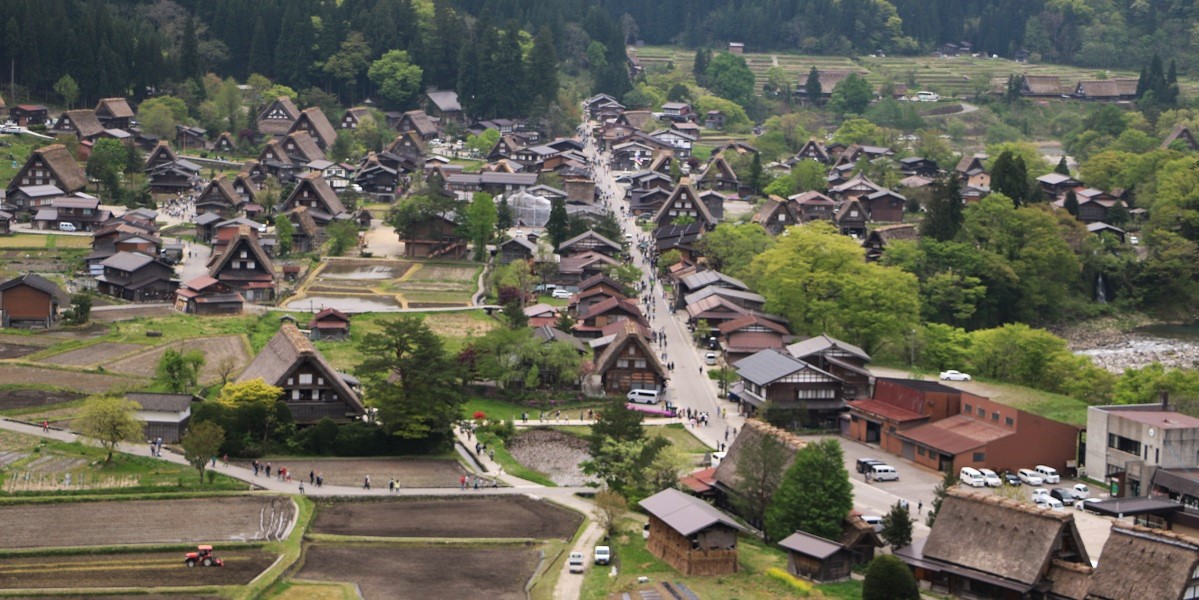
- Tour code :
- SDR14
The Dragon Route is a famous path of travel in Central Japan that follows along many of the most significant historical and cultural spots. Some of them include UNESCO World Heritage Site Shirakawa-Go, Magome, Takayama, Kanazawa, and many others. This tour will allow you to learn and experience in-depth the history and culture of Japan, including visits to many famous temples and shrines, former Shogun and samurai residences, beautiful Japanese gardens, impressive castles, and fascinating museums. You will see and experience traditional arts and crafts of various areas, view beautiful natural scenery, and taste many delicious local dishes of Nagoya, Gifu prefecture, Kyoto, and others places. The tour offers you to enjoy all Ryokan/Minshuku style accommodation – the traditional Japanese art of hospitality, with elaborate local traditional dinners and breakfasts included with most stays. The 14 day Dragon Route tour is the perfect way to experience traditional Central Japan in all its versatility and beauty!
- You are a first, second, and third-time visitor to Japan
- You enjoy history, culture, and some scenery
- You want to see A LOT in one trip
- You have a lot of energy and like to move around
- You want to experience as much of Japan as possible without spending a fortune
- You love to stay in Traditional Style Accommodation (Ryokan and Minshuku)
Blue parts are included in the tour cost
Orange parts are additional options
For travelers seeking to explore Tokyo and Kyoto deeper, it is recommended that their total stay in Japan is longer than 14 days, to allow them free-time before beginning and the end of the tour.
All itineraries are adjustable to fit your needs and interests. Please contact us directly for assistance: info@tourismdesingers.com
-
Day 1 : Tokyo
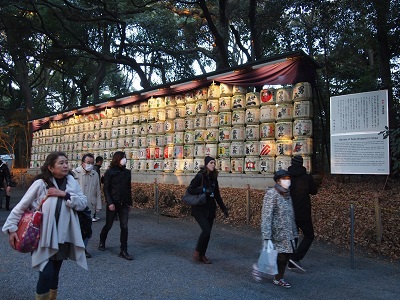
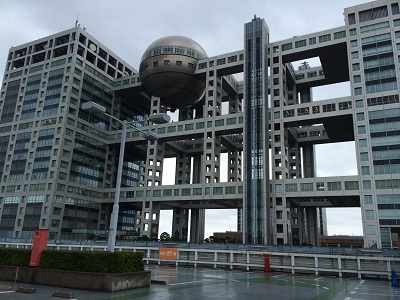
Start the tour as you arrive to Ueno area in Tokyo from Narita airport. It is recommended to use train, to get from the airport to Ueno station (40 min).
Depending on your arrival time at Tokyo, it is recommended to visit all or some of the following attractions. We suggest starting from Takeshita Dori in Harajuku for great shopping and exploring Tokyo street fashion, as well as some delicious crepes. For those interested in traditional culture – beautiful Meiji Jingu shrine is located just behind Harajuku station. Then head to Tokyo Metropolitan Government Building observatory to get an idea of how big Tokyo is and enjoy dinner at Memory Lane. After dinner time enjoy night walk in Kabukicho Neon Area, and drinks at Golden-gai bar town. You will see a lot of teeny-tiny bars gathering in this district and see the life of salarymen after work hours.
Accommodation: Sunroute Stela Ueno (or similar), standard twin room, with breakfast
Location: 2 min walk from Ueno Station (JR and subway). Convenient to follow the suggested itineraries in Tokyo.-
Day 2 : Tokyo
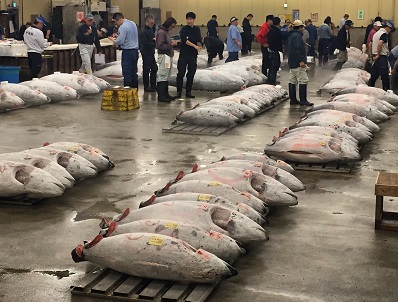
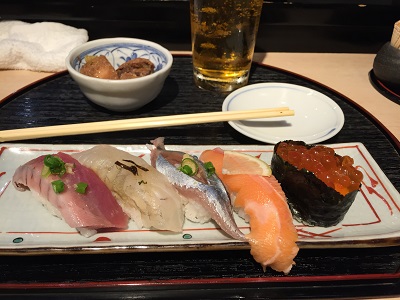
Begin the second day in Tokyo by visiting Tokyo’s oldest temple – Asakusa Sensoji and learning about its fascinating history. Later in the day, enjoy a Sumida River cruise to Hama Rikyu. In the spring the river is a wonderful sport to observe cherry blossoms, however, it is beautiful in any season and time of the day. For lunch of freshest seafood go to outer Tsukiji Fish Market. Sushi Zanmai is one of the most recommended and famous restaurants in Japan, when it comes to sushi. In the afternoon explore Ginza department store district for more great shopping and fashion, then visit Shibuya to see the famous Scramble Crossing and Hachiko statue. End the day by wandering in Ueno Park and Ameyoko market (open until 8 PM).
Accommodation: Sunroute Stela Ueno (or similar), standard twin room, with breakfast
-
Day 3: Tokyo and Nagoya
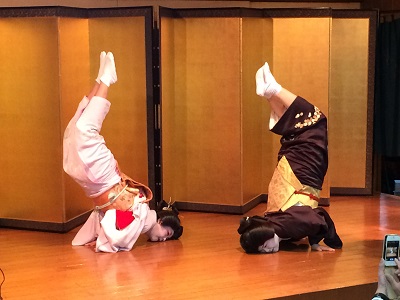
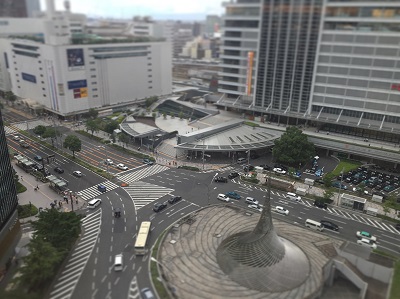
In the morning take a Shinkansen (Bullet train) from Tokyo to Nagoya (1 h 40 min) to explore the samurai legacy and local culture of the city. It is highly recommended to join Samurai City walking tour for an introduction to some of Nagoya’s most popular areas with a private guide. For a self-guided tour of the city visit Nagoya Castle, Toyota Commemorative Museum of Industry and Technology, one of Japan’s three most sacred shrines – Atsuta Shrine, and end the day by shopping for souvenirs and visiting beautiful Osu Kannon Temple at Osu Shopping Arcade. For those looking to explore a luxurious dinner option we offer a private Banquet with Geisha.
Accommodation: Daiwa Roynet Nagoya (or similar), standard twin room, with breakfast
Location: 3 min walk from Nagoya Station (JR, subway, Meitetsu Line, Kintetsu Line, Aonami Line, and bus terminal). Easy to get around Nagoya City
-
Day 4: Nagoya/Kiso Valley


Leave Nagoya in the morning by taking 1 hour Express from Nagoya to Nagiso, and bus from Nagiso to Tsumago (15 min/300 JPY/person). Leave your luggage at your Minshuku accommodation and take a bus to Magome, a tiny well-preserved village on top of a mountain (25 min/600 JPY/person). Wander around Magome-juku village, enjoy some gorgeous views from the top, visit museums (may be closed in winter), and have lunch. After lunch, challenge a scenic 8 km/2 hour Nakasendo hike from Magome-juku to Tsumago-juku. First 45 min are uphill, the rest are downhill. The trail runs through cider path, rice fields, old houses, riverside, and a waterfall. Finally, treat yourself to some Japanese sweets after the hike in Tsumago-juku. In the evening, if you still have some energy, we recommend night walk in Tsumago village with lanterns outside the houses.
Accommodation: Fujioto Ryokan (or similar), Japanese style room, with dinner & breakfast
Has a Japanese garden and cypress bath tub.
Location: Inside Tsumago Village.-
Day 5: Kiso Valley/Mino
In the morning of day five use luggage transfer service and transfer your main luggage to Takayama (around 1,500 JPY/bag), then head to Mino. Take 15 min/300 JPY/person bus from Tsumago to Nagiso, then 2 hours on local trains from Nagiso to Mino Ota, and 30 min/630 JPY/person train from Mino Ota to Minoshi.
Spend the day wandering around Mino, visiting Mino paper village, Kataji Gorge, mountain hiking (2-3hrs), or cycling in nature. In the evening take a taxi to your accommodation.
Accommodation: Higahora in Minoshi (or similar), Japanese style room, with dinner and breakfast
Location: Minshuku is located in a tiny village (10 residents with 6 houses), 6 min taxi ride from Minoshi Station.-
Day 6: Mino/Gujo Hachiman
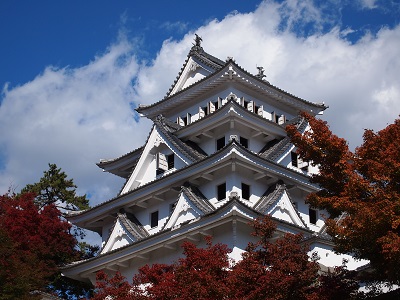
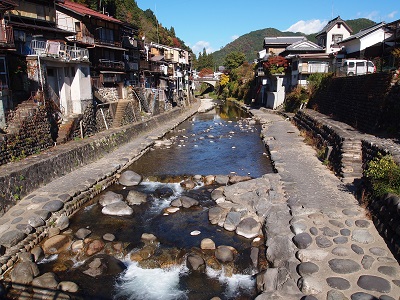
Take a 50 min/950 JPY/person train with gorgeous views to Gujo-Hachiman city. Visit Gujo-Hachiman Hakurankan for Gujo Dance, take a hike to Gujo-Hachiman Castle with a breathtaking view from the top, and visit Jiozenji temple. Wander around Gujo town, visiting museums and try feeding koi fish in the rivers. Gujo-Hachiman is the birth place of famous Japanese food replicas, so here you can learn how plastic menu samples at Japanese restaurants are made and challenge food sample making experience yourself.
Accommodation: Sekisuien in Gujo Hachiman (or similar), Japanese style room, with dinner and breakfast
Location: 10 min by hotel shuttle from Gujo Hachiman Station. Walking distance to most of the town center sightseeing spots.-
Day 7: Gujo Hachiman/Takayama
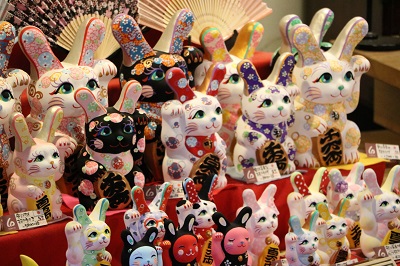
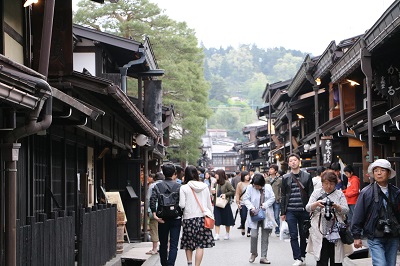
On day seven take 1 hour 15 min bus from Gujo Hachiman to Takayama. Enjoy a relaxed walk around the city’s old merchant town, shopping for souvenirs and trying local foods and locally-made sake. Some of the local foods recommended to try are: Hida Beef, Mitarashi Dango, miso on magnolia leaf, and Takayama ramen noodle. Visit Float Exhibition hall, Matsuri no Mori museum, Hida Takayama Outdoor Museum of Art, and stroll at old Higashiyama path, passing temples and shrines.
Accommodation: Takayama Ouan (or similar), Japanese style room, with breakfast, Your luggage will be waiting for you at this accommodation.
Location: Close to the train station and bus stop of sightseeing bus route.-
Day 8: Takayama/Shirakawago
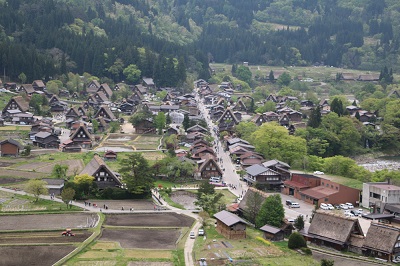
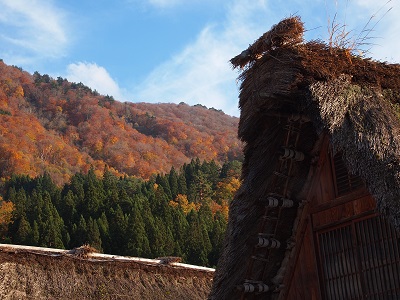
Spend the morning visiting Takayama morning markets: Miyagawa (at Miyagawa river side) and/or Jinya (in front of Takayama Jinya hall). Then, take a 50min bus from Takayama to Shirakawago. Enjoy lunch and afternoon at UNESCO World Heritage Site Shirakawa-go. Stroll the streets, enjoy the river views, and visit the old farm-style houses to learn about their history.
Accommodation: Otaya Minshuku (or similar), Japanese style room, with dinner and breakfast, Gasshozukuri style house (Hida area traditional style house). Farm life experience activities are available.
Location: Inside Shirakawa-go.
-
Day 9: Shirakawago/Kanazawa
Take a 1 hour 15 min bus from Shirakawago to Kanazawa in the morning. Spend the day exploring Kanazawa Castle Park with a beautiful Japanese garden. Then have a lunch of a fresh seafood rice bowl at Omicho Market and later stroll at Higashi Chayagai – old tea-house district where Geisha perform. There, you can enjoy a tea ceremony, and sea a tea room completely decorated with gold.
Accommodation: Dormy Inn Kanazawa (or similar), Japanese style room,
Location: 2 min walk from Kanazawa Station. Easy access to suggested activities on foot or by bus-
Day 10: Kanazawa
Second day in Kanazawa. Kanazawa is famous for its gold leaf craft and you can discover many hints to that in different aspects of local culture. For example, you can try a real gold leaf ice cream for dessert and of course try Gold leaf craft experience yourself. On this day we also recommend visiting 21st Century Museum of Art, Ninja temple, featuring many hidden doors and traps, Samurai Houses at Nagamachi, and gorgeous Kenrokuen Garden with Seisonkaku Villa (former samurai residence).
Accommodation: Dormy Inn Kanazawa (or similar), Japanese style room-
Day 11: Kanazawa/Kyoto (Arashiyama)
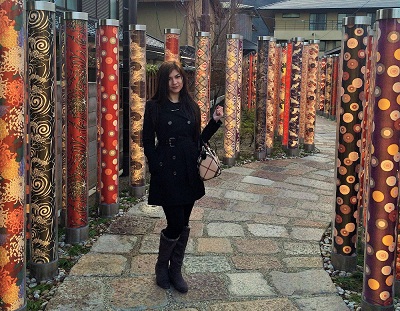
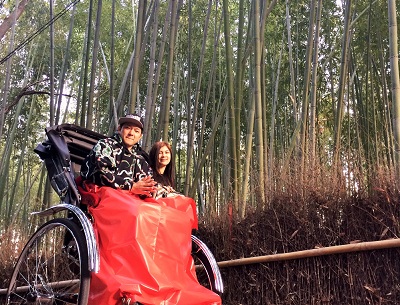
In the morning, take 2 hour 20 min Thunderbird Express from Kanazawa to Kyoto and head to Arashiyama area for a day of sightseeing by 15min JR train. Arashiyama features beautiful sights of Hozu River, where you can enjoy a river cruise. It is also highly recommended to visit Bamboo path, which can be either walked or visited on a rickshaw (man-powered carriage), which are available in abundance in Arashiyama. Spend the rest of the day exploring Tenryu-ji temple, Monkey park, Saga-Toriimoto preserved street, and many other beautiful area. In the autumn foliage season it is recommended to enjoy a short train ride along Saga scenic Railway.
Accommodation: Heianbo Minshuku (or similar),
Location: 3 min walk from Kyoto Station (JR, Kintetsu line, subway, and bus terminal). Convenient for all the activities suggested in example itineraries.-
Day 12: Kyoto
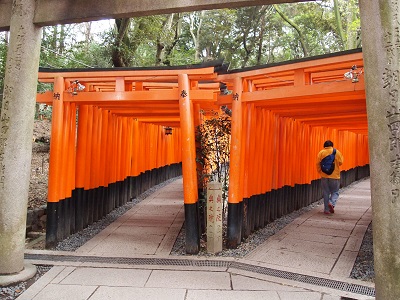
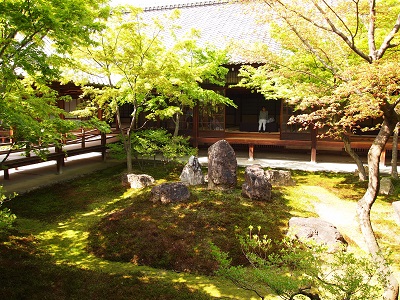
Begin your second day in Kyoto by visiting the famous and beautiful Fushimi Inari Shrine (Shrine of a Thousand red Torii gates), continuing to Tofuku-ji Temple which has a relaxing Zen garden and Japanese garden. After lunch head to Gion (the Geisha district) for a kimono dressing experience and attend a tea ceremony or calligraphy class. In the evening enjoy a night walk around Gion and see if you can find Maiko and Geiko. It is also recommended to attend a Gion Corner Japanese traditional entertainment show program featuring Maiko and Geiko and have a dinner in Ponto-cho or Kiyamachi.
Accommodation: Heianbo Minshuku (or similar)
-
Day 13: Kyoto
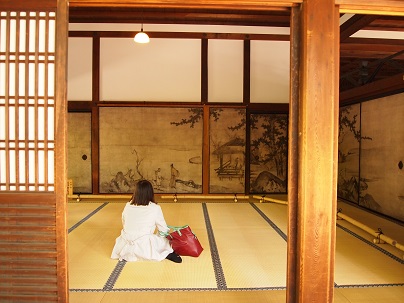
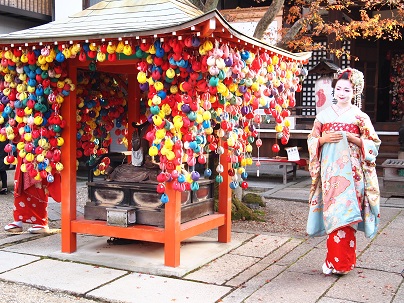
For your last day in Kyoto you might want to challenge a hike at North of Kyoto from Kurama to Kifune, along cedar forest (2-3 hours). In the afternoon enjoy souvenir shopping at Handicraft Center. Spend evening at Kyoto station for more shopping and appreciating the stunning architecture with Ramen dinner at Kyoto Station Ramen Street.
Accommodation: Heianbo Minshuku (or similar)
If you have more time, we recommend these other itineraries in Kyoto:- Locations: Mt Daimonji walk, Ginkakuji (Silver Pavilion), and Philosopher’s Path walk
- Cycling: Fushimi Inari, Tofukuji, Nanzenji, and Golden Pavilion (with Philosopher’s Path), ride back along Kamo River
- Activities: Green tea farm visit, Japanese cooking class, Geisha dressing, Zen practice experience, Calligraphy class, Japanese drawing class.
-
Day 14: Kyoto
If you still have time in the morning, pick one of the itineraries from above, then take Haruka train to KIX, or shinkansen and Narita Express to NRT for your departure.
*reservations for programs and places can be made upon request
- 2 nights at Sunroute Stela Ueno, twin room, breakfast
- from 11,800 JPY/person/night
- 1 night at Daiwa Roynet Nagoya, twin room, breakfast
- from 10,500 JPY/person/night
- 1 nights at Fujioto Ryokan, Japanese style room, dinner and breakfast
- from 10,800 JPY/person/night
- 1 nights at Higahora, Japanese style room, dinner and breakfast
- from 8,000 JPY/person/night
- 1 night at Sekisuien, Japanese style room, dinner &breakfast
- from 14,040 JPY/person/nigh
- 1 night at Takayama Ouan, Japanese style room, breakfast
- from 13,000 JPY/person/nigh
- 1 night at Otaya Minshuku, Japanese style room, dinner &breakfast
- from 9,200 JPY/person/nigh
- 2 nights at Dormy Inn Kanazawa, breakfast
- from 9,700 JPY/person/nigh
- 3 nights at Heianbo Minshuku , Japanese style room, no meals
- from 6,480 JPY/person/nigh
- Shinkansen from Tokyo to Nagoya
- 11,090 JPY/person
- Express from Nagoya to Nagiso
- 3,160 JPY/person
- Local train from Nagiso to Mino Ota
- 1,490 JPY/person
- Bus from Gujo Hachiman to Takayama
- 1,850 JPY/person
- Bus from Takayama to Shirakawago
- 2,470 JPY/person
- Bus from Shirakawago to Kanazawa
- 1,850 JPY/person
- Thunderbird Express from Kanazawa to Kyoto
- 6,700 JPY/person
- Service fee *Please see below
- 30,000 JPY/person
*Our company does not apply mark-ups for the tours. We list the items at market prices, and if you find the same items at a lower price, we will gladly match it. Instead of markups, we apply service fee, which includes itinerary design, booking services, individually designed travel book, and 24 hour support by phone and e-mail during your trip.
- Tour code :
- SDR14


